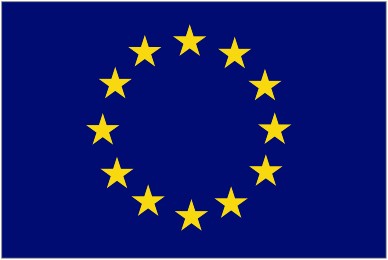Poll by the Italian School
inexhaustible: 34
renewable: 27
non-renewable: 28
sufficient to the human needs: 35
insufficient to the human needs: 36
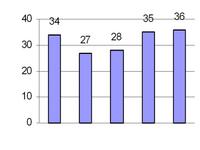 Which activity depends on water?
Which activity depends on water?
domestic: 49
agricultural: 78
industrial: 12
tourist: 10
social: 11 In your opinion the distribution of water is an issue
In your opinion the distribution of water is an issue
political: 32
economic: 56
social 21
geographical: 43
tourist: 8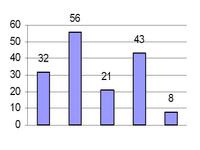 Is there a disparity in the distribution of water among rich and poor countries?
Is there a disparity in the distribution of water among rich and poor countries?
YES: 66
NO: 3
Don't Know: 11 Is water shortage a problem in your country?
Is water shortage a problem in your country?
YES: 44
NO: 28
Don't Know: 8
Are you conscious of how precious water is?
YES: 79
NO: 1 Do you think you are responsible for the preservation of water?
Do you think you are responsible for the preservation of water?
YES: 33
NO: 25
Don't Know: 22 Do you know that our school is developing the school project "Water-the Blue Planet"?
Do you know that our school is developing the school project "Water-the Blue Planet"?
YES: 72
NO: 8 If yes, how have you got the information?
If yes, how have you got the information?
from the teacher involved in the project: 69
from the mass-media: 5
other sources: 6
Do you consider that your school should take part in such a project?
YES: 70
NO: 2
Don't Know: 8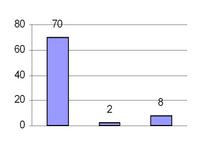
How much do you know about water as a limited source of life?
100%: 27
75%: 29
50%: 18
25%: 6
0%: 0
Do you have any idea of the qualities of the water in your area?
YES: 47
NO: 8
Have no idea: 25
How rationally is water used by your local community?
100%: 4
75%: 40
50%: 15
25%: 17
0%: 4
How much are the local authorities interested in water cleaning and its reasonable use?
100%: 0
75%: 15
50%: 18
25%: 40
0%: 7
Have you ever take part in activities regarding water pollution prevention?
YES: 17
NO: 63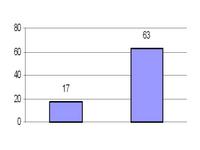
Would you like to work on the purpose of the project?
YES: 52
NO: 2
Don't know: 22
(This poll is implememnted among the students of the Italian School during 2003-04. The results taken have been processed by the same students).













